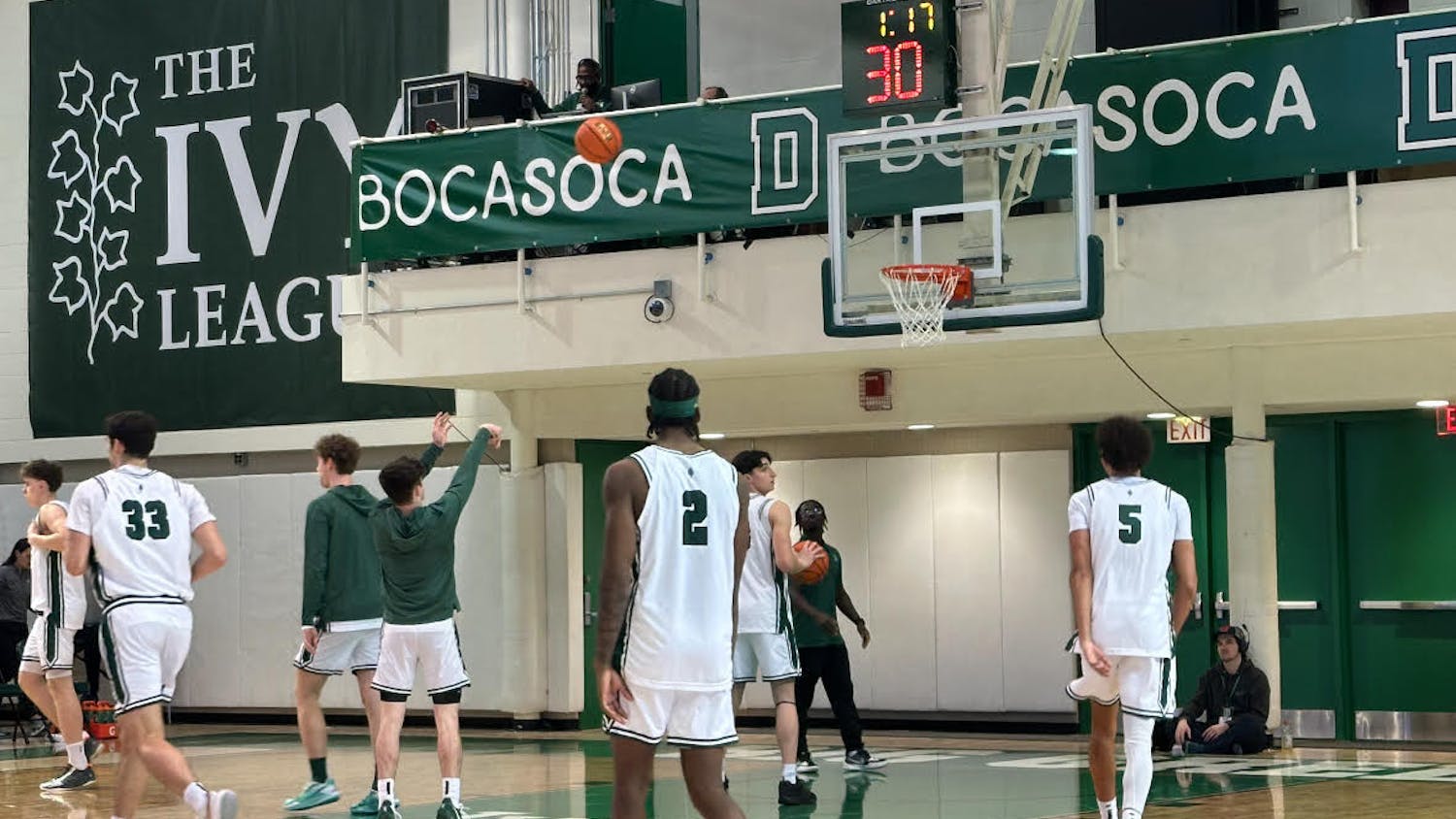Students who search for a P.E. course to fulfill one of those mandatory credits and happen to enroll in P.E. tennis can expect to be bombarded by questions many of which have little to do with their years of experience or strength of their backhand swing on their first day of class. This is not a training technique, but instructor Terry Cooper's preferred method of introduction. Cooper teaches four tennis classes a week in the hope of helping participants reach an intermediate-level playing caliber.
"I like to find out where students are from," Cooper said. "I've been around a lot and like to find out these things."
That could be an understatement, as Cooper is in his fifth year as a P.E. instructor at the College, but has been a presence at Dartmouth sporting events for over 30 years.
Having one of the longest associations with tennis at Dartmouth, Cooper first arrived on campus in 1983 to coach the now-defunct women's JV tennis team. From there, he shifted positions to take the helm of the women's varsity team for a year while its coach was on maternity leave, and was later appointed varsity assistant coach upon her return all while managing the JV team until its termination in 1993.
"Terry is a really fun instructor, mainly because he has such great sense of humor, but he is also a really good teacher," Danny Gobaud '10, who is currently enrolled in the tennis class, said.
Cooper helped manage Dartmouth tennis until he retired in 1997, leading the JV team to three undefeated seasons and contributing to a 1992 varsity team that reached its highest-ever ranking in its division.
During his tenure at Dartmouth, Cooper has also worked as a tennis director at Camp Tecumseh in Moultonboro, N.H., over the past 31 years.
Cooper's background in the sport from his commitments to camps and college-level competition is not typical of an average tennis coach.
Growing up in New Jersey, Coopersaid he spent most of his time watching and playing baseball. As a kid, he supported the Philadelphia Phillies and his childhood hero pitcher Robin Roberts.
"I probably watched baseball more than any other sport, because we lived near Philadelphia and my father would always go for a drive on Sundays," Cooper said. "My dad would always say, Gee, the Phillies are playing, do you want to go to a ballgame?' And of course I said yes."
Using the skills he first learned playing tennis, Cooper incorporated his knowledge of the necessity of hand-eye coordination to help learn baseball. The two sports would later define his multiple careers.
"I used to throw tennis balls at the garage wall and outline the strike zone, and I would pitch with the tennis ball and field them as ground balls," Cooper said. "So, by doing that, I made myself a pitcher."
After years of practicing baseball at home, Cooper joined his high school's varsity team and the Western Michigan University freshman team as a pitcher.
Tennis came creeping back into his life soon after, when he made the varsity team his senior year of college.
Having majored in history and physical education, Cooper found a channel to practice both his interests, as he taught history and coached sports at various high schools in Pennsylvania.
Whether it was soccer, basketball or baseball, Cooper found a way to play a prominent role in his school's P.E. department. During his stay at Haverford School in Haverford, Pa., he achieved unprecedented success in coaching baseball.
Cooper coached baseball at Haverford for five years and guided the team to two championships with the help of star players who included John Hickenlooper, the current mayor of Denver, Colo., and two players Larry Ryan and Rusty Taylor who would later appear in Sports Illustrated's "Faces in the Crowd" piece. Cooper recalls that Ryan once struck out 28 out of 36 batters in a game called early due to darkness. Rusty Taylor later became the winningest prep soccer coach in the country.
Cooper's achievements at Haverford pale in comparison to what he says is his fondest recollection of his time there: Playing against and beating a team coached by his childhood hero Robin Roberts.
Reaching this pinnacle in his career, Cooper again opted to do the unthinkable, and left his position as the team's head coach to return to coaching tennis.
"Someone said quit when you're at the top, and I did," Cooper said. "I went on to tennis and coached [at Haverford] from 1972 to 1979."
Despite his return to the courts, Cooper hasn't forgotten his roots on the baseball field, and introduced himself to Dartmouth baseball head coach Bob Whalen in his very first year on the job in 1990.
"[Cooper's]'s a wonderful man, and comes to almost all of our home games he's really into it," Whalen said. "We invite him every year to our end of the year cookouts. He's really such a good friend and a supportive guy."
Age is just a number for Cooper, whose memory is just as sharp as his serves, and can recall anything from a former team's play-by-play details to information about almost any town in the country. "It's amazing that someone who's done it as long as he has still has that zest and such great energy, and a love for working with young people," Whalen said. "At this stage in his career, to have that type of passion both for the sport and for developing younger players is really a great lesson for all coaches."
With an impressive resume like Cooper's and a personality to match, students can expect to leave his P.E. course learning much more than just tennis.



